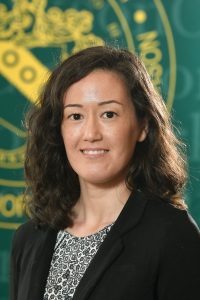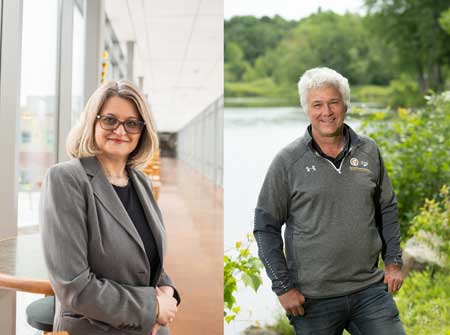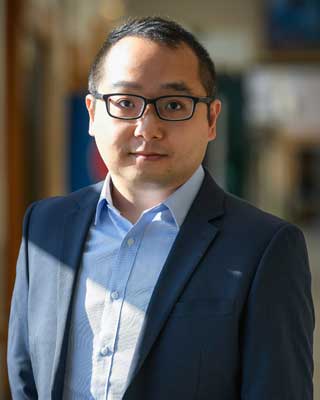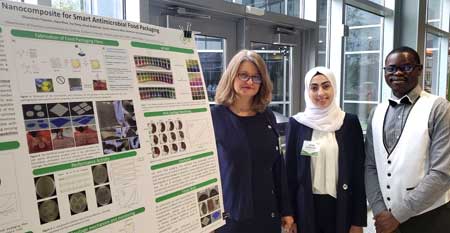School of Arts & Sciences Newsletter: December 2023
Message From the Dean
It's the end of the fall semester, but our hard-working students and faculty show no signs of letting up as new recognition and support for their research and scholarship is reported each week. In this month's newsletter, you'll read about some very significant funding for research, including communication between cells in the body, testing of a new Alzheimer’s treatment, sustainable food packaging, and treatment of agricultural pollution. You'll also see articles on the recognition of our students. Please enjoy this issue of the School of Arts & Sciences Newsletter!
— Darryl Scriven, Dean of Arts & Sciences, Fellow in The Shipley Center for Innovation
Cell-to-Cell Communication

The National Institutes of Health awarded Assistant Professor of Biology Ginger Hunter a nearly $1.8 million Maximizing Investigators’ Research Award for Early Stage Investigators. Her work is studying how human body cell structures called cytonemes are regulated and how they contribute to the ability of cells to coordinate their activities during patterning. Defects in cell-cell communication during patterning can lead to human disorders and disease.
Read More About This Research Award
Removing Phosphate Pollution

Two professors and their research partners were awarded a $749,000 grant from the Department of Agriculture to develop a filtration system to capture and recover phosphate from agricultural drainage. The recovered phosphate could be used as a fertilizer and to provide a renewable supply and economic opportunities to farmers.
Read More About This Grant
Testing Alzheimer’s Treatment

Assistant Professor of Chemistry Ka Ho Leung was awarded a nearly $300,000 grant from the National Institutes of Health to test a new treatment that targets specific channels in cells to see if it can help reduce the harmful sustained immune response in Alzheimer's disease. The increasing prevalence of Alzheimer’s disease and the lack of successful drugs in clinical trials have caused a significant healthcare burden.
Read More About This Grant
Sustainable Food Packaging

Egon Matijević Endowed Chair of Chemistry & Biomolecular Science Silvana Andreescu and her student team received a New York State Pollution Prevention Institute grant for their research into a new type of 3D printed packaging fabricated from green and sustainable sources. It monitors and maintains food quality and increases its shelf life, reducing food waste.
Read More About This Research
